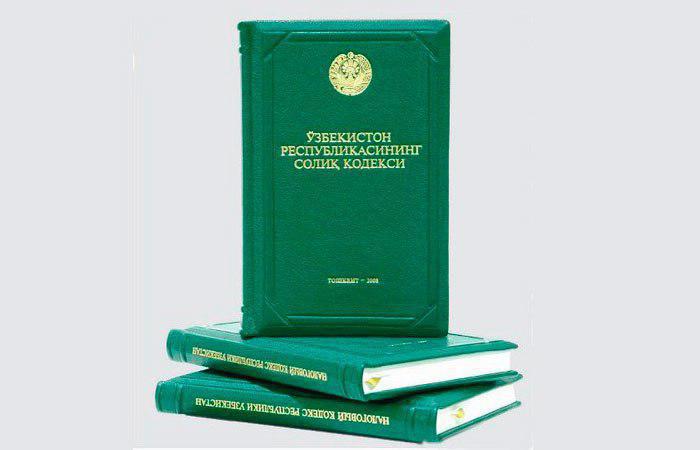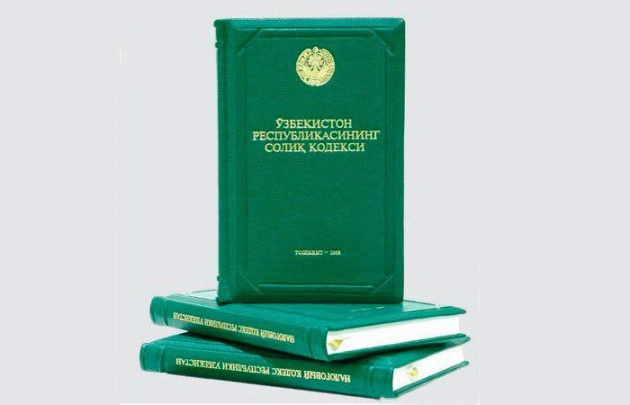Text of the Tax Code in a new edition published

The new version of the Tax Code has been published on the website of the Finance Ministry, Spot writes.
Work on the document has been ongoing since 2018. The authorities were assisted in this by the Big Four specialists (Deloitte, PWC, E&Y, KPMG), former Finance Minister of Russia Sergey Shatalov and other experts.
The project should have been developed before July 1, 2018, but then the deadlines shifted to December 1 of the same year. However, they could not manage to finish the work by the set date.
“We cannot manage to develop a new version of the tax code. Thus, we came to a conclusion that since we are doing something worthy, we need to complete it till the end. If we make changes, then it can be reduced to a minimum. There is no way to speed up the process,” Finance Minister Jamshid Kuchkarov said in October 2018.
In November 2018, the new draft Tax Code was introduced for discussion. In July 2019, amendments and additions were announced. In September, the project was again put up for discussion. In early December, deputies adopted the code, and at the end of the month, the President signed the corresponding law.
The new edition of the Tax Code contains 21 sections, 71 chapters and 480 articles. It entered into force on January 1, 2020, but sections VI, VII, and chapter 5 will come into force on January 1, 2022.
The turnover on the sale of goods (services) acquired by legal entities through loans (credits), provided by international and foreign government financial organizations under international treaties as part of projects, approved by international and foreign government financial organizations before July 1, 2020, is not subject to value added tax and excise tax.
For the period until January 1, 2022, an order is introduced in accordance with which the tax authorities notify the Business Ombudsman of the appointment of a tax audit in compliance with the procedure.
The taxpayer has the right to carry forward the loss incurred before January 1, 2020, to the future for no more than five years following the tax period. The total amount of the carried forward loss, taken into account in each subsequent tax period, may not exceed 50% of the tax base of the current tax period.
Clause 1 of the first part of Article 40 shall come into force on January 1, 2023. Until January 1, 2023, the controlling person of a foreign company is a legal or individual person, whose share in the foreign company is more than 50%.
Related News

21:19 / 22.04.2025
Gov’t raises fines by tenfold for illegal precious metal trade

13:22 / 30.05.2024
Fines for tax-related offenses significantly reduced in Uzbekistan

16:38 / 20.05.2022
Tax and Customs Codes to be amended

18:00 / 30.12.2021




